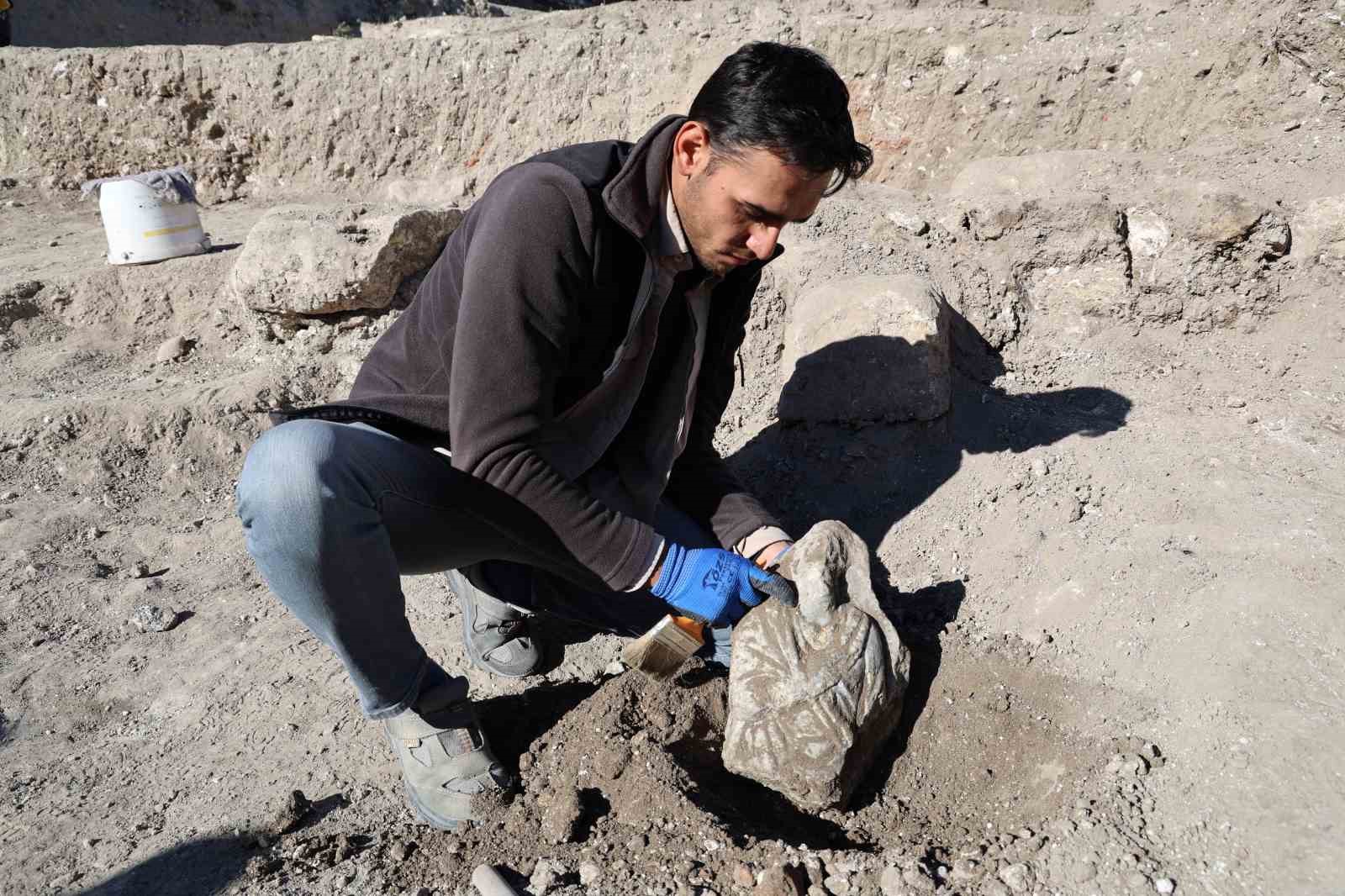
A 2000-year-old tombstone was uncovered during the excavations at Sivas Castle
A 2000-year-old Roman period tombstone was uncovered during the ongoing excavations at Sivas Castle, located in the center of Sivas in eastern Türkiye.
Excavations at Sivas Castle began in 2019. The studies have yielded findings from the Hittite, Roman, Byzantine, Seljuk, and Ottoman periods.
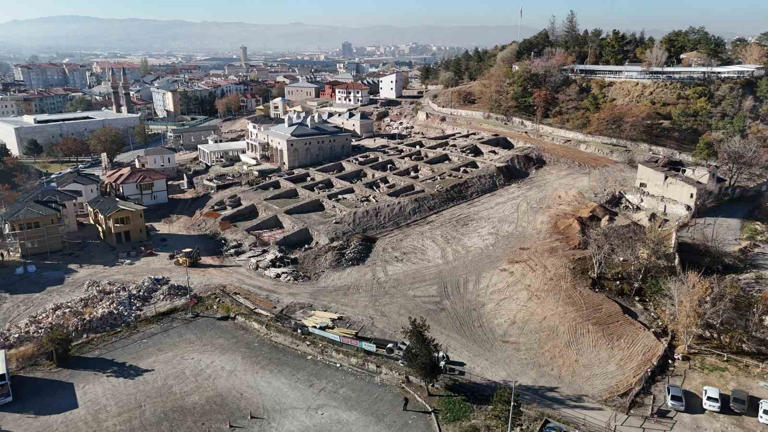
Onur Aydın, an expert art historian providing information about the excavations at Sivas Castle, stated, ‘We have found two figures from the Early Bronze Age. These are significant for this area. They had been discovered before, but the ones found this year more clearly indicate that they belong to that period. Additionally, we have a very important finding from the Roman period, which is a tombstone from that era. There is a human torso, but unfortunately, the head has been damaged. The clothing, hand, and torso are visible. The work will continue for another month depending on the weather conditions. Next year, we will continue our work around March or April.’
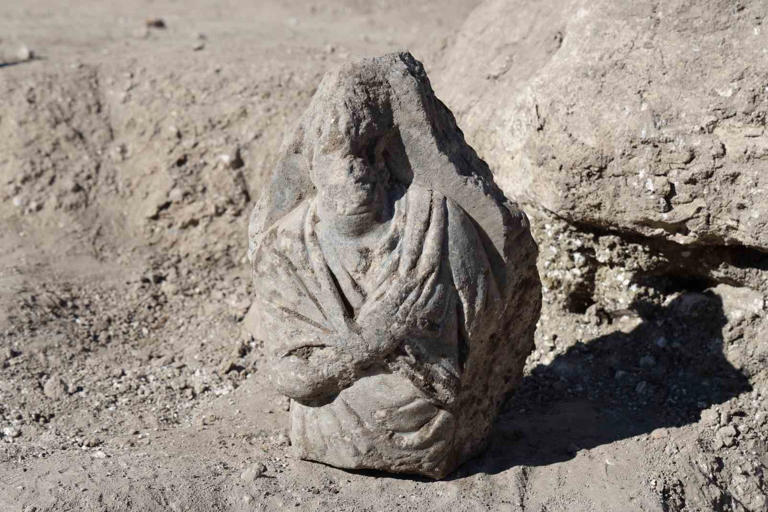
In the Sivas Castle, which is a third-degree archaeological site, dense findings from the Seljuk period are being uncovered.
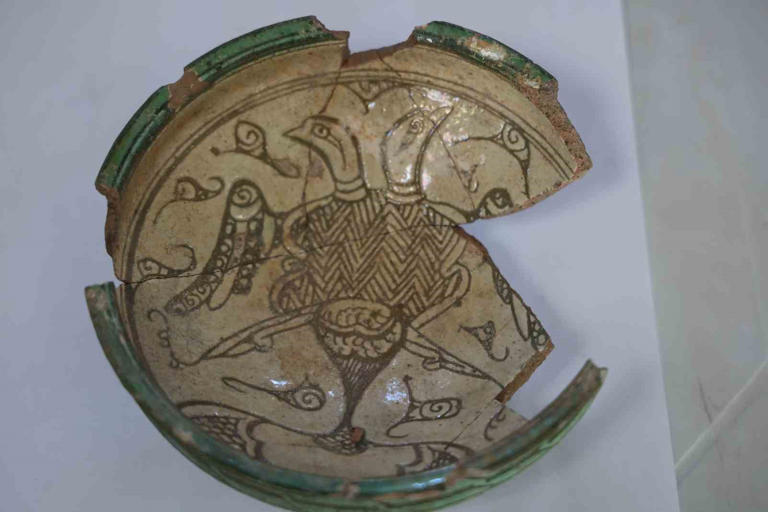
Archaeologists have started to find structures from the Seljuk period. Outside the structures, walls, floors, tandoors, and plaster decorations featuring animal, human figures, as well as floral and geometric motifs, are among the most commonly seen artifacts.
Expert Art Historian Hüseyin Çil stated that they have found many pieces from various periods since the Early Bronze Age, saying, “Although our findings are limited, they are significant in terms of data. When we look at the site in general, we do not see a complete stratification. The area has been continuously damaged, and the upper and lower layers have swapped places. Here, we see a dense presence of Byzantine, Seljuk, and Ottoman artifacts. Due to their proximity to the present day, we can read the Seljuk and Ottoman periods more clearly. Our excavation work will continue at a later stage. We have not been able to progress fully due to seasonal conditions, but in the upcoming excavation season, we plan to fully uncover this data, particularly aiming to reveal the traces of the Seljuk Palace.”
You may also like
- A 1700-year-old statue of Pan unearthed during the excavations at Polyeuktos in İstanbul
- The granary was found in the ancient city of Sebaste, founded by the first Roman emperor Augustus
- Donalar Kale Kapı Rock Tomb or Donalar Rock Tomb
- Theater emerges as works continue in ancient city of Perinthos
- Urartian King Argishti’s bronze shield revealed the name of an unknown country
- The religious center of Lycia, the ancient city of Letoon
- Who were the Luwians?
- A new study brings a fresh perspective on the Anatolian origin of the Indo-European languages
- Perhaps the oldest thermal treatment center in the world, which has been in continuous use for 2000 years -Basilica Therma Roman Bath or King’s Daughter-
- The largest synagogue of the ancient world, located in the ancient city of Sardis, is being restored

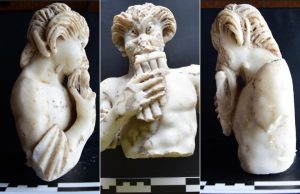
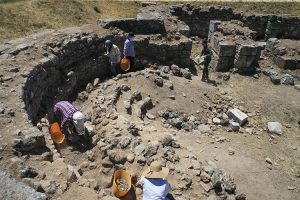
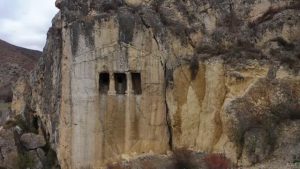
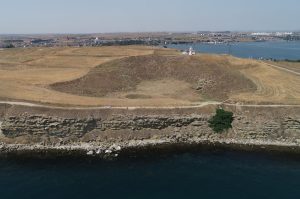
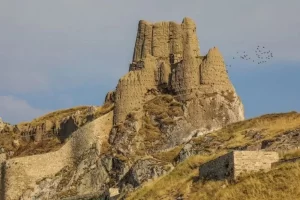
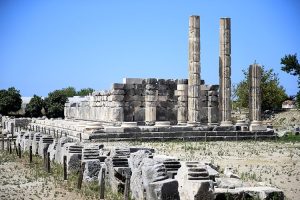


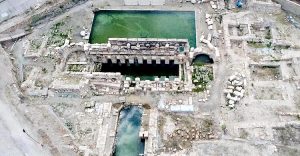
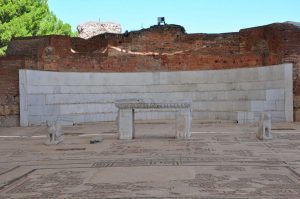
Leave a Reply